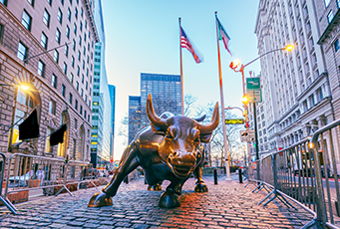2020 has been a volatile year for the stock market. The Dow Jones Industrial Average (DOW) began the year over 29,000; dropped below 19,000 in March; and now sits at a record level of 30,000! If you are approaching retirement or are simply uncomfortable with a 30% drop in your portfolio, what do you do?
After this year of volatility, some investors may want to reduce the risk in their portfolio and shift toward less risk or risk-free investments. These types of shifts provide protection with a small positive return. Right? Well, not always. In some environments, they can guarantee losses in spending power.
Interest vs. Inflation
For those approaching retirement, you may be thinking a small return on your savings account or money market fund sounds a lot more appetizing than trying to stomach the recent stock market volatility. Shifting financial assets to low-risk options can help protect those assets from stock market downturns, much like what we saw in the 1st and 2nd quarter of 2020.
Capital preservation becomes much more important relative to your portfolio's appreciation when retirement is in sight. However, some forms of capital preservation can end up hurting you. You risk losing spending power if your return is not outpacing inflation.
When investing, a goal is often to gain spending power down the road. In this context, inflation can be viewed as a hurdle that we need to clear.
Inflation
The current inflation rate for the United States is 1.2% (U.S. Labor Department data, November 12, 2020). Over the last 50 years, the U.S. inflation rate has averaged around 3.9%, but has anchored lower since the financial recession of 2008-09. Based on these figures, we are in an historically low inflation environment. This low inflation hurdle should be great for savers, right? Well, not necessarily.
Interest Rates
We are also in an historically low interest rate environment. The Federal Reserve is projecting near-zero interest rates through at least 2023 to help spur economic activity and aid in recovering from the coronavirus pandemic.
As of November 30, the FDIC reported that the national average interest rate on savings accounts stands at 0.05% APY. If your dollars are earning 0.05% annually while those same dollars are losing their spending power to inflation at a rate of 1.2% annually, you guarantee losses in spending power. It may not seem like a loss, since your savings account dollars are likely FDIC insured and your statement shows a small interest payment. But when considering inflation, your savings are losing value quicker than they are gaining interest.
If savings account rates are behind inflation, what else can I do?
Another option for investors' risk-averse assets is money market mutual funds. These are not FDIC insured but typically offer better yields than your average savings account. However, the average money market fund is also currently trailing inflation. Bankrate's recent survey of institutions reported money market funds averaging around 0.1% APY.
Where do I look after money market funds?
When investment interest is as low as today’s rates, investors may need to look to short-term bond funds to provide enough yield to outpace inflation. Short term bonds are not FDIC insured like a savings account or designed to retain their value in any environment like most money market funds. Short term bond funds come with some additional risk since the underlying bonds can fluctuate in value. Due diligence is required when looking for short-term bond funds to make sure they are taking an appropriate amount of risk to achieve their yields.
You may be wondering, is this an historically typical predicament or do interest rates typically outpace inflation? Dating back to the mid-1950s, the average monthly Federal Funds Rate is approximately 4.7%, while the average monthly U.S. Inflation rate is about 3.5%. This suggests that as a long-term average, you can expect interest rates to outpace inflation.
However, the inflation rate typically outpaces interest rates when we are recovering from a recession and the Federal Reserve is lowering interest rates to spur economic growth and activity. This is where we found ourselves in the early part of the past decade and once again during the current coronavirus pandemic. Will it last forever? No, but we're probably a couple of years out from a significant change.
Summary
Investors should consider the impact of inflation when investing the low-risk portion of their portfolio to ensure spending power is not eroding. Assess your appetite for risk in these areas and dial in your portfolio accordingly.
Schedule a Consultation
We have helped our clients answer these questions and more. If you want a clear understanding of your financial future, and need help making changes to reach your goals, schedule a consultation and we can get started.
Please remember that past performance may not be indicative of future results. Prior to implementing any investment strategy referenced in this article, either directly or indirectly, please discuss with your investment advisor to determine its applicability. Any corresponding discussion with a Bedel Financial Consulting, Inc. associate pertaining to this article does not serve as personalized investment advice and should not be considered as such.
Recommended Articles
International Stocks: Exploring Global Investments
Investing in international securities offers an appealing...





